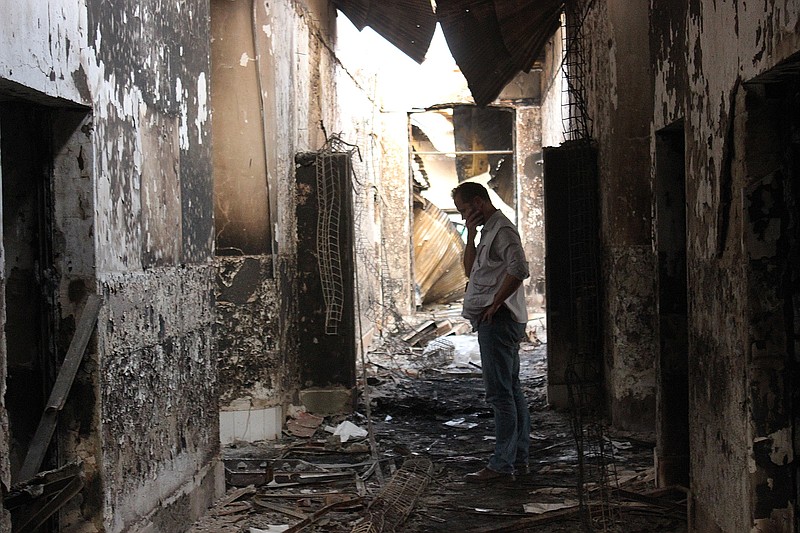WASHINGTON (AP) - The crew of a U.S. warplane that attacked a medical charity's hospital in northern Afghanistan last month, killing and wounding dozens of civilians, misidentified the target, believing it to be a government compound taken over by the Taliban, according to an investigation report obtained Wednesday.
The report said the crew of the U.S. AC-130 gunship relied on a physical description of the compound provided by Afghan forces, which led the crew to attack the wrong target. It said the intended target, thought to be under Taliban control and being used in part as a prison, was 450 yards away from the hospital.
Investigators found no evidence that the crew or the U.S. Special Forces commander on the ground who authorized the strike knew the targeted compound was a hospital at the time of the attack.
The plane fired 211 shells at the compound over a 25-minute period before commanders realized the mistake and ordered a halt, it says.
The report says the attack on Oct. 3 in the city of Kunduz killed at least 31 civilians and injured 28 others. Investigators determined that additional civilians likely were killed or injured.
The investigation, known officially as a combined civilian casualty assessment, was led by U.S. Army Brig. Gen. Richard Kim and was comprised of representatives of NATO and the Afghan government. It was charged with determining facts surrounding the incident but not to assign blame.
A subsequent U.S. military investigation was done to look further at the case and to determine accountability. Gen. John Campbell, the top U.S. commander in Afghanistan, was scheduled to make a public statement Wednesday about the further investigation. Officials said they intended to release a summary of that probe but not the full report, which is about 3,000 pages.
Doctors Without Borders, known by its French initials MSF, said earlier this month in its own report that several doctors and nurses were killed immediately, and patients who could not move burned to death in the ensuing fire. Hospital staff members made 18 attempts to call or text U.S. and Afghan authorities, the group said.
People fleeing the main building were cut down by gunfire that appeared to track their movements, while a patient trying to escape in a wheelchair was killed by shrapnel, the MSF report said.
A copy of the casualty assessment report was obtained by The Associated Press on Wednesday. It has not been publicly released.
The report said investigators found no evidence that the Americans involved knew they were attacking a hospital. It said they found no evidence that key commanders, including the Afghans and the AC-130 gunship crew, had access to a "no strike" list of targets that were off-limits to attack. Under U.S. rules of engagement, no hospital or similar facility is a valid target.
It is unclear whether the U.S. Special Forces commander on the ground, who authorized the air assault, had the map grid coordinates for the Doctors Without Borders hospital available to him at the time he authorized the attack, the report said. The medical charity had provided GPS coordinates for its medical facilities in Kunduz to U.S. military authorities in Kabul and to Afghan government officials on Sept. 29.
"This mission critical information was not received by the AC-130 aircrew" or the Afghan commanders, the report said.
"The misidentification of the MSF compound and its subsequent engagement resulted from a series of human errors, compounded by failures of process and procedure, and malfunctions of technical equipment which restricted the situational awareness" of the U.S. forces involved, the report concluded.
President Barack Obama has apologized for the attack, one of the worst incidents of civilian casualties in the 14-year history of the U.S war effort.
___
Associated Press writer Lynne O'Donnell reported from Kabul, Afghanistan
